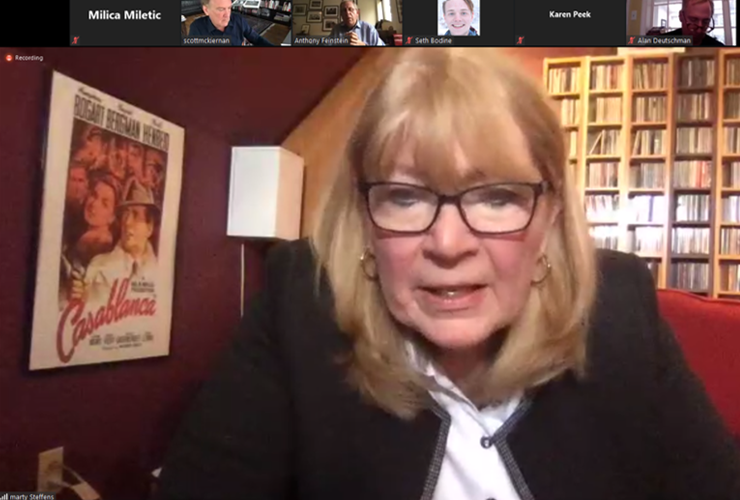It’s easy for journalists to overlook their own mental and psychological well-being in covering this unprecedented story. To help, IPI Executive Board member Martha Steffens of the University of Missouri School of Journalism organized a webinar on April 7 with Dr. Anthony Feinstein of the University of Toronto and Scott McKiernan, the founder of independent photo agency ZUMA Press, to give advice on how to deal with the pressures created by this crisis.
Dr. Feinstein is an acknowledged expert on the effects of post-traumatic stress disorder on journalists who cover war and conflict zones. His book Dangerous Lives examines the psychological toll that conflict reporting takes on those who report on them. He has been instrumental in shining the academic light on this often overlooked phenomenon.
McKiernan is a photojournalist with decades of experience. Zuma Press was founded as a wire service by photojournalists for photojournalists and since has grown into the largest of its kind. Its photographers have won numerous awards for their work.
For photojournalists, McKiernan said, the pandemic is especially dangerous because they have to be in the place where the story is and thus carry the real risk of taking the virus back home, whereas journalists are more often able to work remotely. The fact that the threat does not end when you exit the crisis area but can be carried, literally, with you when you go back is something that is absent from more traditional conflict reporting.
Dr. Feinstein noted the importance of maintaining structure, routine and planning in our lives as we cover the ongoing crisis. One way to do this is to compile a list of things you can have control over and those that you do not.
For example, things in the first category can include setting up a routine for each day, with time allocated for things beside work such as meditation and preparing healthy foods. In the second column you should be adding things like the death rate, rumors, and other people’s behavior.
By doing this, he said, you can avoid engaging in what he called “catastrophic thinking” in which all the worst-case scenarios keep going around and around in people’s mind and in which you stack one negative thought on top of another. Catch yourself doing this and interrupt it with a positive distractor.
Even though it might seem trite, Dr. Feinstein said, journalists should try to limit stressors in their lives. Apart from making such a list, they should unplug from work and social media at the end of the day, maintain social contacts with friends, family and colleagues, and to remember that they can and should ask for help whenever necessary.
“Getting enough sleep is also crucial so that you can have enough energy during the crisis. The nuts and bolts of everyday life are still there, and we need to have the emotional energy to deal with them”, he added.
Journalists are very much at the frontlines of this crisis, and they should remind themselves of their crucial roles in guaranteeing the functions of a civil society, Dr. Feinstein noted. It is important that both media management and journalists themselves validate the work we do.
McKiernan said that the crisis can lead to changes in the ways that media outlets do their everyday business. The increase in teleworking has not been a major shock for Zuma Press, as its journalists were already used to working remotely, but for other outlets the pandemic can lead to greater changes in work culture.
In addition, he thinks that the emergency situation can be a chance for introspection into what people might want to do in the future. Especially those who might not have much to cover in their traditional beats, such as sports journalists, can think about what they would want to do, and what kind of stories they would want to pursue.
